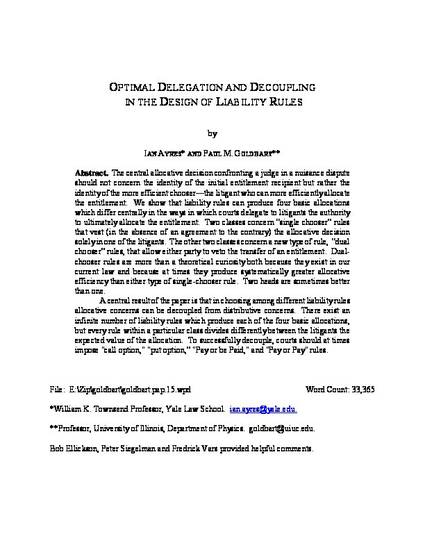
The central allocative decision confronting a judge in a nuisance dispute should not concern the identity of the initial entitlement recipient but rather the identity of the more efficient chooser—the litigant who can more efficiently allocate the entitlement. We show that liability rules can produce four basic allocations which differ centrally in the ways in which courts delegate to litigants the authority to ultimately allocate the entitlement. Two classes concern "single chooser" rules that vest (in the absence of an agreement to the contrary) the allocative decision solely in one of the litigants. The other two classes concern a new type of rule, "dual chooser" rules, that allow either party to veto the transfer of an entitlement. Dualchooser rules are more than a theoretical curiosity both because they exist in our current law and because at times they produce systematically greater allocative efficiency than either type of single-chooser rule. Two heads are sometimes better than one.
A central result of the paper is that in choosing among different liability rules allocative concerns can be decoupled from distributive concerns. There exist an infinite number of liability rules which produce each of the four basic allocations, but every rule within a particular class divides differently between the litigants the expected value of the allocation. To successfully decouple, courts should at times impose "call option," "put option," "Pay or be Paid," and "Pay or Pay" rules.
Available at: http://works.bepress.com/ian_ayres/15/
